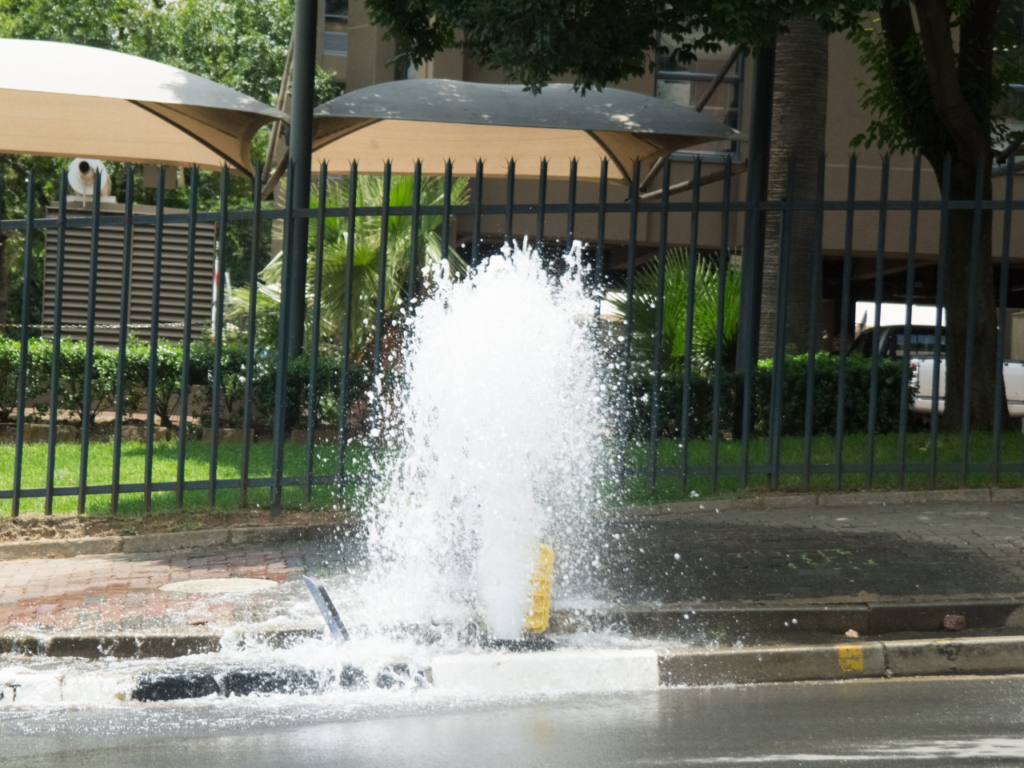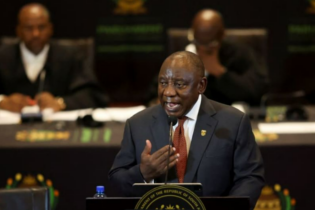Minister of Water and Sanitation Pemmy Majodina notes that within the department’s quarterly progress reports the issue of non-payment rears its head throughout. This non-payment has a knock-on effect that disrupts the entire water value chain. If water users don’t pay, then municipalities can’t pay, which means the water boards suffer, and this in turn affects the department’s performance and goals.
How the sausage is made
South Africa has many spheres of government, each with its own level of independence and oversight. According to the constitution “A municipality has the right to govern, on its own initiative, the local government affairs of its community, subject to national and provincial legislation, as provided for in the Constitution.” This means that a municipality has a certain level of independence so long as it achieves its mandates within the constitutional framework. The responsibilities of a municipality can be summed up as:- Manage itself in order to provide the basic services it owes its constituents as per the constitution
- Promote the social and economic development of the community the municipality serves
- Participate in national and provincial development programmes.
Water boards are the hardest hit
 The water boards are the hardest hit by this issue. Water boards are responsible for delivering potable water to the various municipalities that rely on them. These institutions are invaluable to South Africa yet between 2019 and 2024 the debt owed to them has increased by 151%. This has left some water boards such as Vaal Central Water and Magalies Water in financial turmoil with the possibility of bankruptcy in 6 to 12 months. This leaves the Northern Cape, the Free State, and the North West in an extremely vulnerable position where the entire water value chain is at risk. Both of these water boards took over from Sedibeng Water as the entity was disestablished in 2022 due to bankruptcy, they are now facing a similar fate.
The water boards are the hardest hit by this issue. Water boards are responsible for delivering potable water to the various municipalities that rely on them. These institutions are invaluable to South Africa yet between 2019 and 2024 the debt owed to them has increased by 151%. This has left some water boards such as Vaal Central Water and Magalies Water in financial turmoil with the possibility of bankruptcy in 6 to 12 months. This leaves the Northern Cape, the Free State, and the North West in an extremely vulnerable position where the entire water value chain is at risk. Both of these water boards took over from Sedibeng Water as the entity was disestablished in 2022 due to bankruptcy, they are now facing a similar fate.
“The magnitude of this problem is devastating to the cash flow of water boards and negatively affects the entire water value chain. Finding solutions to this unsustainable challenge is urgent and cannot be deferred any further,” said Mr Leon Basson, the Chairperson of the Portfolio Committee on Water and Sanitation.Without intervention, these water boards would have to cut back on essential spending such as vital maintenance, further reducing service quality and opening them up to more future risk. Pemmy Majodina says, “The National Treasury and DWS have collaborated on a standardised process for debt collection and credit control. This debt relief strategy is similar to the one implemented by Eskom. There is a caveat as this mechanism relies on municipalities to fulfil their payment obligation. Those unable to meet these obligations are excluded from this relief. Efforts are also underway to reprioritise budget allocations and explore alternative funding solutions, although available funds remain constrained.” “This issue cannot be solved alone, and we are relying on an inter-ministerial committee that seeks collaboration from multiple sources within government to aid in solving this problem,” Pemmy says. This collaborative approach seeks to reform the ongoing billing issues, help with revenue collection, and improve broader socio-economic goals such as combating the high levels of unemployment which affect payments in the first place.
Compounding issues
The department’s challenges are deeply rooted in the country’s socio-economic state. As of Q2 2024, the country faces:- 33.5% unemployment.
- 55.5% of the adult population are living below the upper-bound poverty line.
- Only 25.9 million South Africans are registered tax-payers.
This is the socio-economic backdrop that Minister Pemmy Majodina speaks of when she says, “The user-pay principle only works when the country is focused on growing the economy.”The user-pay (UPP) principle is the underlying methodology of basic service provision in South Africa, you pay for what you use, and this was adopted in the hopes of creating mindful consumption. However, the practice is far more complicated. Both India and China, in a similar situation to South Africa, grapple with setting tariffs that generate income while balancing service distribution to the underprivileged. The UPP in South Africa creates pressure on those below the poverty line, while the economy offers little in the way of upward mobility.





